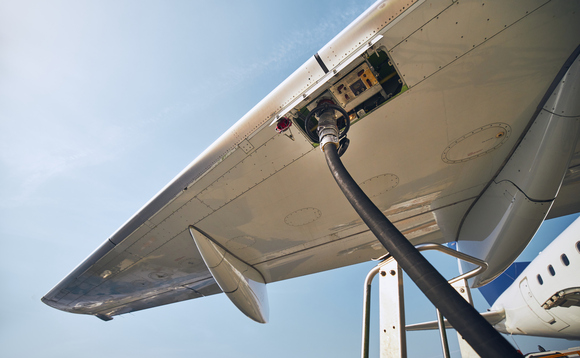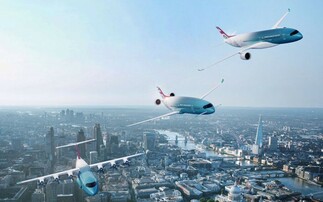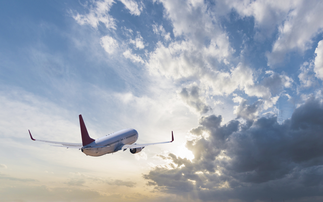Reducing business travel by 50 per cent against 2019 levels could play major role in bringing down cost of transition to sustainable air travel
European flights powered by hydrogen could be cheaper to run than traditional, kerosene aircraft as early as 2035, provided governments enact the right fuel and carbon tax regimes.
That is the headline conclusion of research published this morning by think tank Transport & Environment, which argues that reform to tax regimes around Europe will be critical to speeding up development of aircraft powered by zero emission hydrogen fuel.
The study, completed by research group Steer, notes that a tax on conventional jet fuel and a price on carbon emissions could enable hydrogen planes to be two per cent cheaper to operate than their kerosene counterparts within 12 years.
It argues the development of hydrogen-powered aircraft is a "relatively small upfront cost" when set against the more expensive challenge of developing a green hydrogen economy.
The estimated €15bn required to finish the design of hydrogen powered aircraft is just a tiny proportion of the €299bn thought necessary to build out a renewable hydrogen economy for aviation by 2050, the study calculates.
It also notes that the cost of this transition away from planes powered by hugely emission-intensive fossil fuel could be slashed significantly - to €100bn - if business travel was reduced by half by 2050. Under such a scenario, flights for leisure could remain at 2019 levels. "Reducing demand for business travel will not only be key to reduce emissions, but also to save costs," T&E said.
Carlos López de la Osa, aviation technical manager at Transport & Environment, said there was no "silver bullet" to decarbonising aviation. "Green fuels, demand reduction and hydrogen will all play a role," he said. "For hydrogen planes to take off in the next decade, we need to enter the virtuous circle of regulation, investment, a fall in prices, followed by stronger uptake. But the cost must be shouldered by the aviation industry and its users, by ring fencing part of carbon and kerosene tax revenues for green tech like zero emission planes and clean fuels."
The world's largest plane maker, Airbus, has warned the slow pace of a developing hydrogen production facilities and an accompanying supply chain could delay its plan to bring hydrogen-powered planes into commercial service from 2035.
Transport & Environment argued the company's lobbying against criteria in the EU green taxonomy which would have ensured that only zero emission aircraft could get a green label suggested the firm had doubts about the pace and scale of hydrogen aircraft adoption.
López de la Osa said hydrogen jets would "never be more than a pipe dream" if their development relied only on the goodwill of aviation firms. "Airbus promised the world it would build a hydrogen jet by 2035," he said. "Building these planes is economically feasible, but if we want Airbus to walk the talk, we'll need to create a market for zero emission aircraft, by taxing fossil jet fuel and mandating zero emission planes in the future."
Airbus had not responded to a request for a comment at the time of going to press. The firm has unveiled three concept designs for its proposed hydrogen planes, and on its website states: "We believe hydrogen is one of the most promising decarbonisation technologies for aviation. This is why we consider hydrogen to be an important technology pathway to achieve our ambition of bringing a low-carbon commercial aircraft to market by 2035."
Transport & Environment's report calculates that more than half the estimated €300bn cost of developing a hydrogen economy by 2050 would need to be focused on ramping up industrial-scale production of green hydrogen, which is produced through the electrolysis of water using renewable power.
Nearly a quarter of the cost, meanwhile, would need to focus on the liquefaction process by which gaseous hydrogen is cooled at very low temperatures to become a liquid that can transported and used in aircraft, while further costs lie in developing hydrogen infrastructure at airports and the distribution of the fuel, according to the study.
BusinessGreen readers can sign up now for their free pass to this year's Net Zero Festival.









